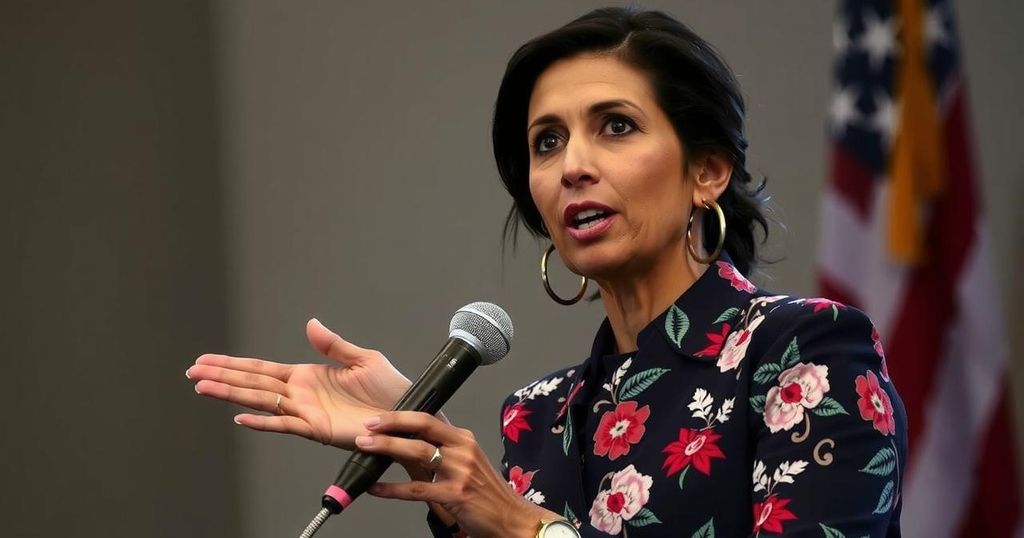Scrutiny Surrounds Tulsi Gabbard’s Nomination as Director of National Intelligence

Tulsi Gabbard’s nomination as Trump’s Director of National Intelligence has provoked scrutiny due to her controversial views on Syria and Russia. Concerns about her ability to foster trust with intelligence allies and her alignment with established foreign policy are salient in the ongoing debate surrounding her potential confirmation.
Tulsi Gabbard, recently selected by President-elect Donald Trump as his nominee for Director of National Intelligence (DNI), has faced renewed scrutiny for her controversial history regarding foreign policy, particularly her 2017 meeting with Syrian President Bashar al-Assad and her remarks relating to Russia’s invasion of Ukraine. As the prospective steward of the United States’ most sensitive intelligence, concerns have arisen about Gabbard’s stance against U.S. military involvement abroad and her critical views towards the intelligence community, raising alarms among former U.S. national security officials regarding potential impacts on international intelligence cooperation.
Specifically, Gabbard’s actions during her congressional tenure, including her skepticism towards U.S. assessments of Assad’s chemical weapons use, have been particularly contentious. Following U.S. military action in Syria in April 2017, she condemned the strikes as “reckless and short-sighted”. Moreover, her later statements during Russia’s invasion of Ukraine, which some critics perceived as echoing Russian narratives, further exacerbated concerns regarding her suitability for the DNI role. Thus, bipartisan apprehension surrounding her nomination is prevalent, highlighting divergent views on Gabbard’s perspectives within the geopolitical landscape.
While some officials express doubt about Gabbard’s capability to foster trust with foreign intelligence partners, others maintain that longstanding bilateral relationships will endure regardless of individual appointments. As her Senate confirmation looms, scrutiny over her past positions is anticipated to be a significant factor in deliberations. Gabbard herself has framed her critics as proponents of a warmongering establishment. Nevertheless, Gabbard’s nomination uniquely raises critical questions concerning her alignment with established U.S. foreign policy and intelligence practices, posing challenges in a complex geopolitical environment.
The role of the Director of National Intelligence is pivotal, responsible for overseeing numerous U.S. intelligence agencies and advising the President on critical security matters. Tulsi Gabbard, a former congresswoman with a notable track record of anti-war sentiments, has attracted attention following her controversial stances on Syria and statements regarding Russia, especially amidst the geopolitical tensions stemming from Russia’s invasion of Ukraine. The recent discourse surrounding her nomination highlights the intersection of intelligence credibility and political ideology, raising pertinent questions about how her potential leadership could influence U.S. relations with key allies and the intelligence community’s cohesion.
In summary, Tulsi Gabbard’s nomination as Director of National Intelligence has ignited significant scrutiny due to her historical positions on foreign policy and intelligence disputes. As concerns mount regarding her ability to maintain essential intelligence partnerships and navigate the complexities of international diplomacy, her confirmation process will likely surface rigorous dialogue around U.S. foreign policy principles and intelligence integrity. Her nomination encapsulates a broader ideological clash within American politics, reflecting divisions over how the U.S. should engage with global challenges.
Original Source: www.bbc.com








